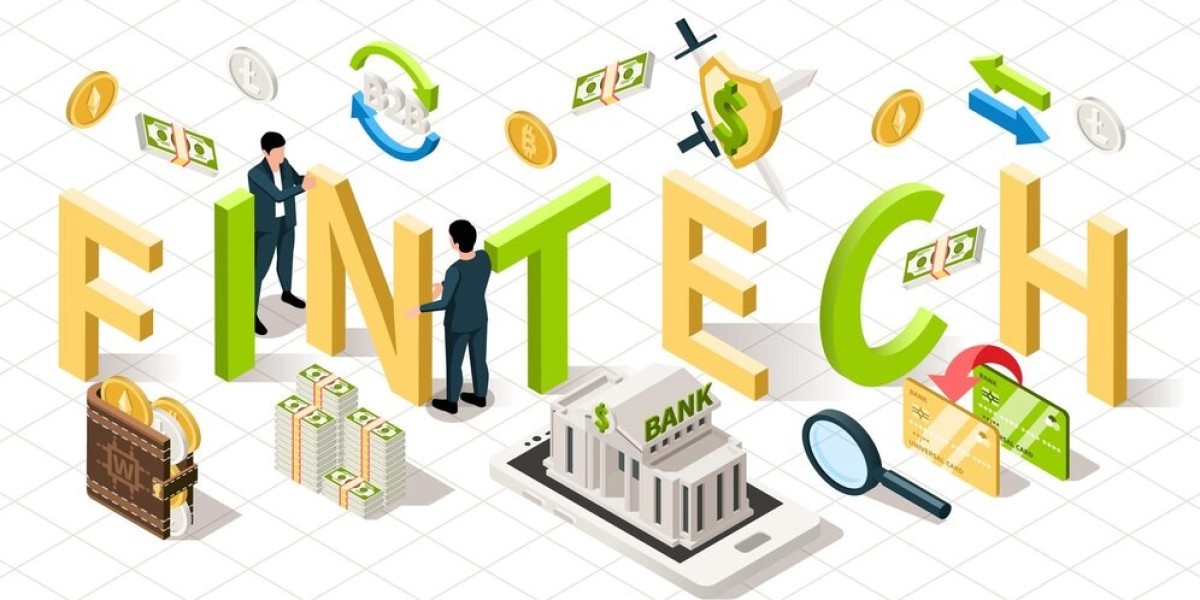Blockchain technology has emerged as a groundbreaking innovation with the potential to transform various industries, and the financial sector is no exception.
In the UK, financial institutions and fintech companies are increasingly adopting blockchain to enhance transaction security, streamline processes, and improve transparency.
This article delves into how blockchain is revolutionizing finance, the benefits it offers, and the role of fintech software development services in this transformation.
Understanding Blockchain Technology
At its core, blockchain is a decentralized digital ledger that records transactions across multiple computers in a way that ensures the data is secure, transparent, and immutable.
Each transaction is grouped into a block, and these blocks are linked together in a chain, hence the name "blockchain." This technology eliminates the need for intermediaries, such as banks, by enabling peer-to-peer transactions.
The Impact of Blockchain on Financial Transactions
1. Enhanced Security: One of the most significant advantages of blockchain technology is its robust security features. Each transaction is encrypted and linked to the previous transaction, making it nearly impossible to alter or hack the data.
This level of security is crucial for financial transactions, where the integrity of data is paramount.
2. Transparency and Trust: Blockchain provides a transparent and tamper-proof record of all transactions.
This transparency builds trust among users, as they can verify the authenticity of transactions without relying on a central authority. Financial software development companies are leveraging this feature to create solutions that foster trust and accountability.
3. Reduced Costs: By eliminating intermediaries, blockchain reduces the costs associated with financial transactions.
Traditional banking systems often involve multiple parties, each taking a fee for their services. Blockchain streamlines this process, resulting in lower transaction fees and faster processing times.
4. Improved Efficiency: Blockchain technology automates and streamlines various financial processes, reducing the time and effort required to complete transactions.
Smart contracts, self-executing contracts with the terms of the agreement directly written into code, are a prime example of how blockchain can enhance efficiency in finance.
Applications of Blockchain in Finance
1. Cross-Border Payments: Cross-border payments have traditionally been slow and expensive due to the involvement of multiple intermediaries.
Blockchain technology enables faster and cheaper cross-border transactions by facilitating direct transfers between parties. Fintech software development services are creating blockchain-based solutions that make international payments more efficient and accessible.
2. Supply Chain Finance: Blockchain can enhance supply chain finance by providing a transparent and immutable record of transactions.
This transparency helps reduce fraud and ensures that all parties have access to accurate information. Fintech software development companies are developing blockchain solutions that improve supply chain financing and reduce risks.
3. Identity Verification: Blockchain technology can streamline the identity verification process by providing a secure and tamper-proof record of an individual's identity.
This can significantly reduce the time and cost associated with KYC (Know Your Customer) procedures. Fintech software development companies are leveraging blockchain to create efficient and secure identity verification solutions.
4. Asset Tokenization: Blockchain enables the tokenization of assets, allowing them to be divided into smaller, tradable units. This can increase liquidity and make it easier for investors to buy and sell assets. Financial software development companies are exploring blockchain-based platforms that facilitate asset tokenization and trading.
Suggested Read: https://appinventiv.com/blog/ai-in-finance/
The Role of Fintech Software Development Services
Fintech software development services play a crucial role in the adoption and implementation of blockchain technology in the financial sector.
These services encompass the design, development, and deployment of blockchain-based solutions tailored to the specific needs of financial institutions. Here are some ways fintech software development services are driving blockchain adoption:
1. Custom Blockchain Solutions: Financial software development companies create custom blockchain solutions that address the unique challenges and requirements of financial institutions. These solutions can range from blockchain-based payment systems to smart contract platforms.
2. Integration with Existing Systems: Integrating blockchain technology with existing financial systems can be complex. Fintech software development services ensure seamless integration, enabling financial institutions to leverage the benefits of blockchain without disrupting their operations.
3. Security and Compliance: Ensuring the security and compliance of blockchain solutions is paramount. Financial software development companies implement robust security measures and ensure that their solutions comply with regulatory requirements.
4. Ongoing Support and Maintenance: The successful implementation of blockchain technology requires ongoing support and maintenance. Fintech software development services provide continuous support to ensure that blockchain solutions remain secure, efficient, and up-to-date.
Suggested Read: https://appinventiv.com/guide/financial-software-development-for-businesses/
Challenges and Future Outlook
While blockchain technology offers numerous benefits, its adoption in the financial sector is not without challenges. Regulatory uncertainty, scalability issues, and the need for standardization are some of the hurdles that need to be addressed. However, the future of blockchain in finance looks promising, with continuous advancements and increasing adoption.
1. Regulatory Frameworks: Governments and regulatory bodies are working towards creating clear and comprehensive regulatory frameworks for blockchain technology. These frameworks will provide the necessary guidelines for financial institutions to adopt blockchain while ensuring compliance with legal requirements.
2. Scalability Solutions: Scalability is a significant challenge for blockchain technology, especially in the context of financial transactions. Researchers and developers are exploring various solutions, such as sharding and layer-2 protocols, to enhance the scalability of blockchain networks.
3. Interoperability: Interoperability between different blockchain networks is essential for the widespread adoption of blockchain technology. Efforts are underway to develop standards and protocols that enable seamless communication between different blockchain platforms.
Conclusion
Blockchain technology is revolutionizing the financial sector by enhancing security, transparency, and efficiency in transactions. The adoption of blockchain in finance is driven by the need for more secure and cost-effective solutions.
Fintech software development services play a pivotal role in this transformation by creating custom blockchain solutions, ensuring seamless integration, and providing ongoing support.
As the financial sector continues to evolve, blockchain technology will play an increasingly important role in shaping the future of finance.
Financial software development companies are at the forefront of this revolution, driving innovation and ensuring that blockchain solutions meet the needs of financial institutions and their customers. The future of finance is undoubtedly digital, and blockchain is set to be a cornerstone of this new era.








